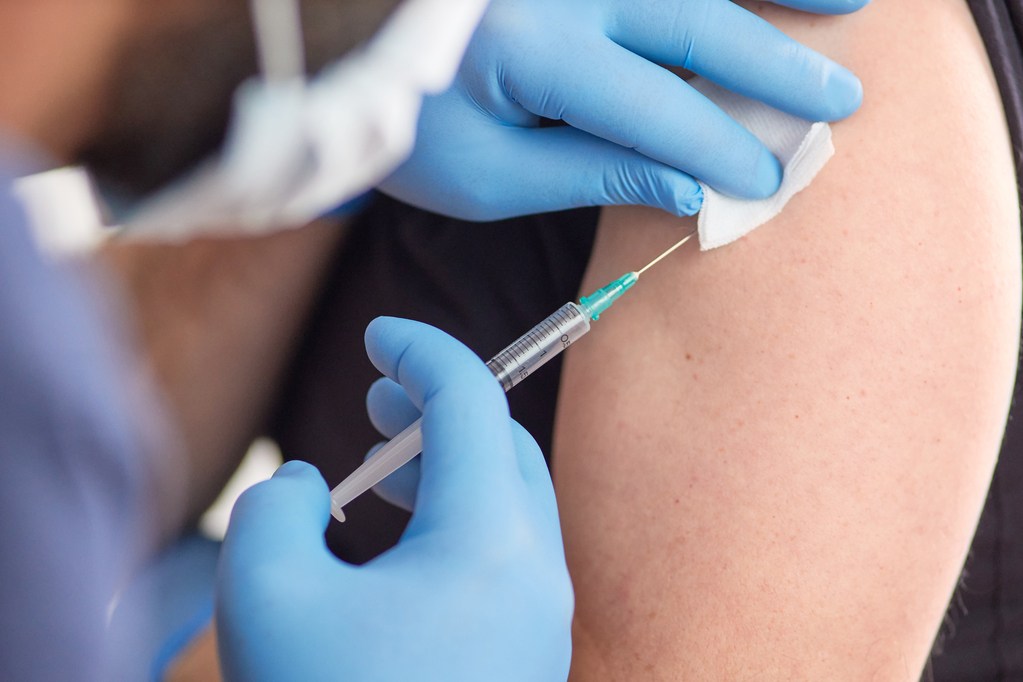While the new COVID-19 variant is spreading in Europe and around the world, many countries have accelerated the launch of the third vaccine dose but there is already talk about a fourth booster vaccination.
The European Centre for Disease Prevention and Control (ECDC) warned already on 15 December that Omicron is likely to become the dominant variant in the EU/EEA within the first two months of 2022.
ECDC stated that according to the evidence currently available, for severe outcomes caused by the Delta and potentially the Omicron variant, booster doses will increase protection, with the population impact expected to be higher if the booster dose is given to most of the adult population within a short interval.
In for example Belgium, the Omicron coronavirus variant continues to spread rapidly and is already responsible for 41% of all registered infections. The number of Omicron infections has doubled again in the past two to three days, said microbiologist Emmanuel André André, who is in charge of the national Reference lab for Covid-19.
In Israel, the first country to start a successful booster vaccination campaign in July against the Delta, an expert advisory panel forecasted this week that the daily number of Omicron cases will reach thousands of cases within two weeks. Despite the uncertainty about Omicron and the effectiveness of the third dose against it, the panel recommended a fourth vaccine dose as a matter of precaution.
Media reported mistakenly that the Israel government had already decided on Tuesday to launch the fourth dose to elderly people, immune compromised people and medical staff but no formal decision has been taken yet by the government. The expert recommendation was less based on evidence about efficacy and risks and more motivated by concerns about the spread of Omicron.
On Friday, reports from Israel said that data shows that the waning of protection from infection from both two and three doses already begins after three months but researchers also said that preliminary analyses do not show a decline in effectiveness against serious illness. They admitted that there is a problem in obtaining reliable results due to the small numbers and statistical error.
Some clarity about the current state of information was given by WHO in an update published on Thursday (23 December). The WHO designated the variant as a variant of concern and gave it the name Omicron on 26 November.
According to WHO, Omicron is a highly divergent variant with a high number of mutations, including 26-32 mutations in the spike protein, some of which may be associated with immune escape potential and higher transmissibility. As of 22 December 2021, the Omicron variant had been identified in 110 countries across the world. Current understanding of the Omicron variant continues to evolve as more data become available.
The overall threat posed by Omicron largely depends on four key questions: (1) how transmissible the variant is; (2) how well vaccines and prior infection protect against infection, transmission, clinical disease and death; (3) how virulent the variant is compared to other variants; and (4) how populations understand these dynamics, perceive risk and follow control measures.
As already known, there is consistent evidence that Omicron has a substantial growth advantage over Delta. It is spreading significantly faster than the Delta variant in countries with documented community transmission, with a doubling time of 2-3 days.
However, it remains uncertain to what extent the observed rapid growth rate since November 2021 can be attributed to immune evasion or intrinsic increased transmissibility, but likely it is a combination of both. At the time of writing, estimates of generation times for Omicron are still needed to better understand the observed dynamics.
Data on clinical severity of patients infected with Omicron is growing but is still limited. Early data from South Africa, the United Kingdom and Denmark suggest a reduced risk of hospitalization for Omicron compared to Delta.
However, the risk of hospitalization is only one aspect of severity, which may be altered by admission practices. More data across different countries are needed to understand how clinical markers of severity – such as the use of oxygen, mechanical ventilation and deaths – are associated with Omicron.
At the present time, it is still unclear to what extent the observed reduction in risk of hospitalization can be attributed to immunity from previous infections or vaccination and to what extent Omicron may be less virulent.
Available preliminary data should be interpreted with caution because the designs may be subject to selection bias and the results are based on relatively small numbers.
Results from the United Kingdom indicate a significant reduction in vaccine effectiveness against symptomatic disease for Omicron compared to Delta after two vaccine doses of either Pfizer-BioNTech or AstraZeneca vaccines. There was, however, higher effectiveness two weeks after a Pfizer-BioNTech booster, which was slightly lower or comparable to that against Delta.
In addition, the increased risk of reinfection reported in England, the United Kingdom, as well as a growing trend of reinfection cases in Denmark and Israel, can be potentially attributed to immune evasion against Omicron.
To sum up, to date, there are still limited available data, and no peer-reviewed evidence, on vaccine efficacy or effectiveness for Omicron.
The Brussels Times

